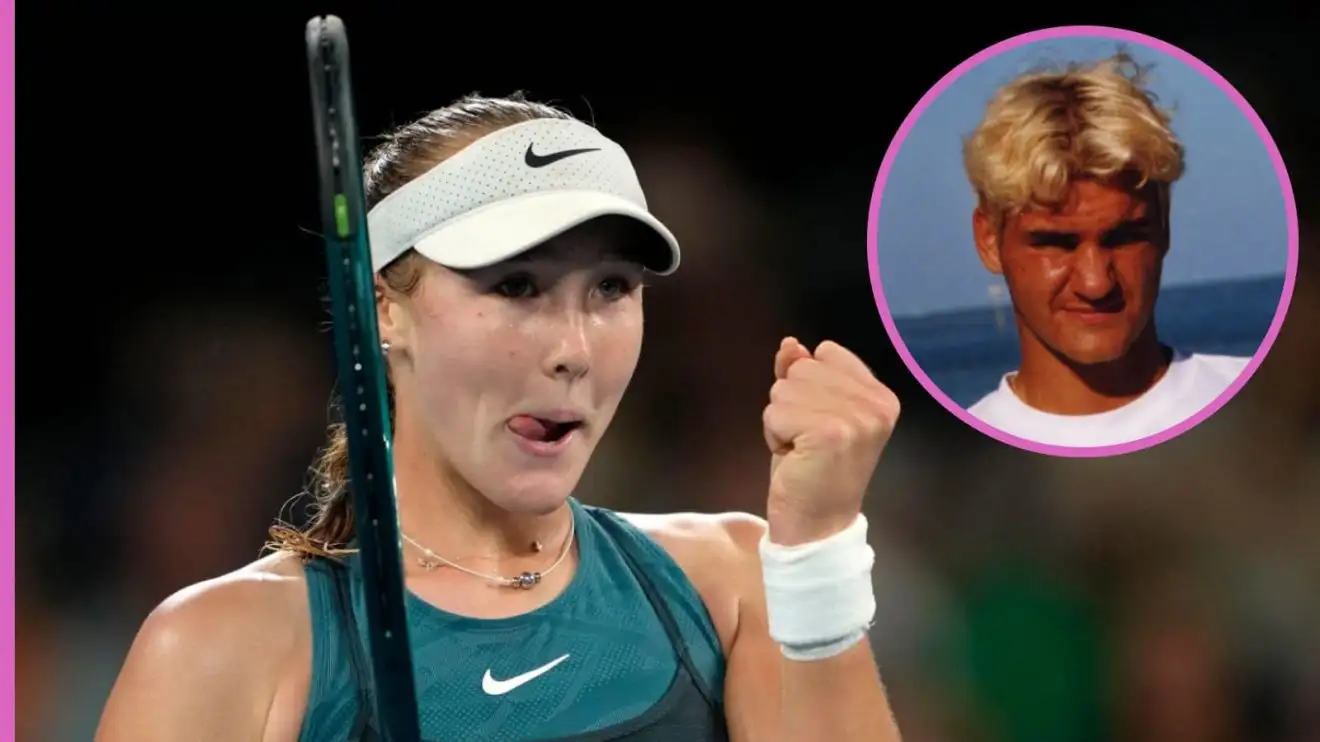The tennis world, a theater of drama and spectacle, found itself once again abuzz with fervent discussion. A young prodigy, barely out of her teenage years, had captured the attention of seasoned observers, her performances drawing comparisons to a legend of the sport, while her mental fortitude was simultaneously labeled as something far less flattering. The center of this swirling narrative was Mirra Andreeva, a name quickly becoming synonymous with both prodigious talent and unflinching determination.
The comparisons to Roger Federer, a player whose grace and artistry had redefined the sport, were nothing short of extraordinary. The former coach, a figure whose experience spanned the careers of numerous champions, including Serena Williams, had made the bold assertion, drawing parallels between Andreeva’s effortless style and the Swiss maestro’s elegant approach. The coach pointed to Andreeva’s smooth movement, her ability to generate power with apparent ease, and her innate court sense, all reminiscent of Federer’s signature style.
“She has that natural flow,” the coach had remarked, a statement that encapsulated the essence of the comparison. This “natural flow” was not merely a matter of technique; it was an intangible quality, a sense of harmony between player and court that few possessed. The coach also noted her ability to stay calm under pressure.
However, amidst the praise and admiration, a contrasting narrative emerged, one that painted a picture of a player possessed of an almost unnerving mental resilience. The same coach, while acknowledging Andreeva’s talent, also described her as “psycho,” a term that, while perhaps intended to convey a sense of awe, carried a potentially negative connotation.
This “psycho” comment, as it was swiftly dubbed, sparked a wave of debate. Was it a compliment, a testament to Andreeva’s unwavering focus and mental toughness? Or was it a veiled criticism, a suggestion that her intensity bordered on obsessive? The ambiguity of the term fueled the discussion, adding a layer of complexity to the already intriguing narrative.
The coach’s comments highlighted the delicate balance between mental fortitude and emotional control. In a sport where pressure and expectation were constant companions, the ability to maintain composure was paramount. Andreeva, by all accounts, possessed this ability in abundance. However, the line between unwavering focus and excessive intensity was a fine one, and the coach’s comment raised questions about where Andreeva stood on that line.
The young player’s on-court demeanor, her unwavering focus and relentless pursuit of victory, had certainly contributed to the perception of her as a formidable competitor. She displayed a maturity beyond her years, a calmness under pressure that belied her youthful appearance.
“She doesn’t flinch,” another observer had noted, a testament to Andreeva’s mental resilience. This unflinching attitude, this refusal to yield, was a hallmark of champions, a quality that set her apart from her peers.
The comparison to Federer, coupled with the “psycho” comment, created a fascinating juxtaposition, a study in contrasts that captured the essence of Andreeva’s enigmatic persona. She was both graceful and intense, elegant and relentless, a player who defied easy categorization.
The narrative surrounding Andreeva also highlighted the immense pressure faced by young athletes in the modern era. The expectations placed on them were immense, the scrutiny relentless. Andreeva, despite her youth, had already demonstrated a remarkable ability to handle this pressure, to remain focused on her goals.
The coach’s comments, while controversial, also served as a reminder of the subjective nature of sports analysis. What one person perceived as unwavering focus, another might interpret as excessive intensity. The line between these two qualities was often blurred, and the interpretation depended on the observer’s perspective.
The discussion surrounding Andreeva’s mental fortitude also raised questions about the role of mental toughness in sports. Was it an innate quality, a gift bestowed upon a select few? Or was it a skill that could be developed through training and experience?
Andreeva’s journey was a testament to the power of dedication and hard work. She had risen through the ranks with remarkable speed, her talent and determination propelling her to the forefront of the sport. Her story was an inspiration to aspiring athletes, a reminder that dreams could be achieved with unwavering commitment.
The ongoing discourse surrounding Mirra Andreeva, with her likeness to a legendary player and the contrasting commentary about her mental state, serves to amplify the interest in this young athlete. The world watches to see how she handles the pressure and continues to develop her already impressive skill set. The tennis world will be watching to see if she can live up to the hype, or if the pressure will become too much.

